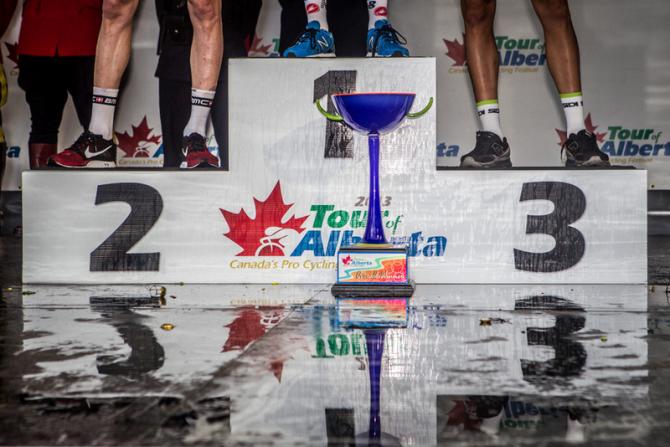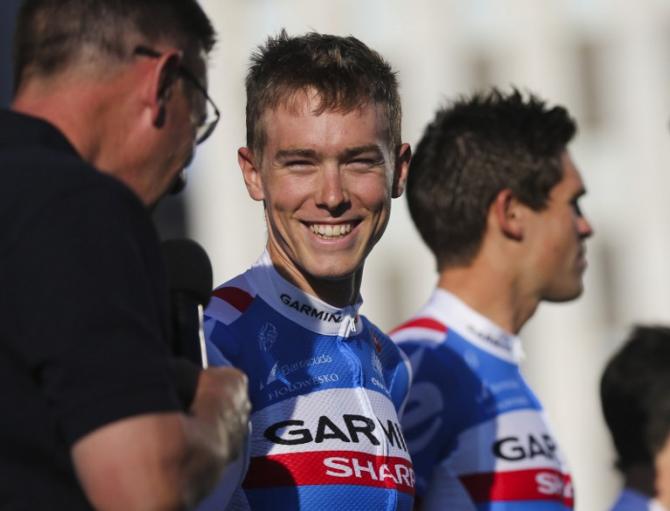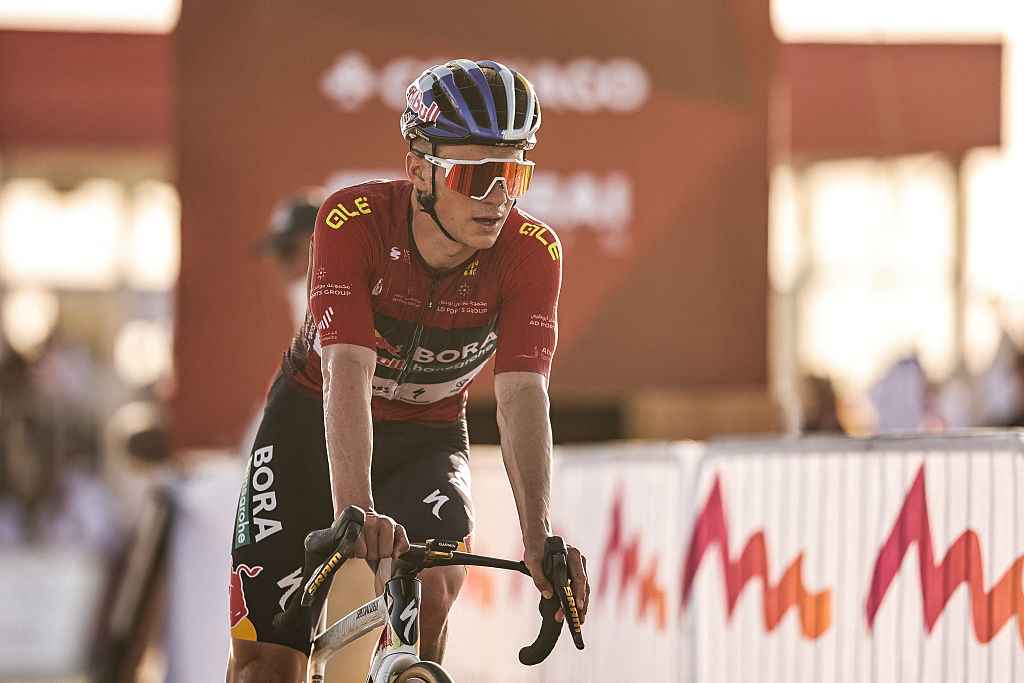New direction for Tour of Alberta?
Possible reverse of race route
The latest race content, interviews, features, reviews and expert buying guides, direct to your inbox!
You are now subscribed
Your newsletter sign-up was successful


News about the 2014 Tour of Alberta has been hard to come by, but word of a switch that would reverse the route's direction this year - starting in the south near Calgary and heading north to a finish in Edmonton - has started to filter out of the vast Canadian province that lies between British Columbia and Saskatchewan.
Lethbridge, a city of 90,000 residents located about 200 km southeast of Calgary, has pledged $300,000 in a bid to host either the opening prologue on September 2 or the first stage on September 3, according to documents on the city's website and a report in the Lethbridge Herald. Race organizers are also reportedly considering Calgary, host of the 2013 finish, as the site for this year's prologue.
The second-year UCI 2.1 race is scheduled to take place over six days September 2-7. The 2013 Tour of Alberta, won by Garmin-Sharp's Rohan Dennis, started with a prologue time trial in Edmonton before working its way south to the finish in Calgary.
Chris Aronhalt of Medalist Sports, the events management company that organizes the race for the Alberta Peloton Association, said he could not comment on the 2014 host cities or race route until after the official announcement, which is expected later this month. Race spokesman Steve Brunner also declined to comment until the official announcement.
But the Cochrane Times previously reported that Alberta Peloton Association executive director Duane Vienneau and director of operations Paul Brosseau revealed details of this year's intended south-north route in February while trying to persuade the town council of Cochrane, located about 40 miles northwest of Calgary, to host a stage.
The 2014 race will start in southern Alberta and send riders north for more than 850 km before the finish in Edmonton, the newspaper reported, and organizers viewed Cochrane as a key fit for the race route.
But the town council balked at the estimated $217,000 total price tag for hosting a stage, according to *Cochrane Times* report. Hosting a stage finish costs $150,000 up front, and the town estimated it would cost another $67,000 in additional expenses such as road closures, permits, traffic control, police, parking and waste management.
The latest race content, interviews, features, reviews and expert buying guides, direct to your inbox!
Other towns and cities have been eager to host a stage.
The Wetaskiwin Times reported last week that the city council of Wetaskiwin, located about 75 km south of Edmonton, has agreed to pay $100,000 in cash and in-kind services to host the stage 4 start. Lethbridge, meanwhile, hopes its $300,000 pledge - $250,000 in cash and $50,000 in in-kind services - will land the city the opening prologue or possibly a circuit race on the following day.
The mountain town of Canmore, which was scheduled to host the finish of last year's Queen Stage until road damage from spring flooding caused a reroute, had previously expressed a keen interest in hosting a 2014 stage and would be a likely spot for a mountain finish. Without a true mountain stage last year, the race relied on the ever-present winds along the southern Alberta plains to make the overall selection.
Given the Tour of Alberta's advantageous position on the North American calendar - sandwiched between the USA Pro Challenge in Colorado and the WorldTour races in Quebec - it drew a quality field to its inaugural effort last year. Peter Sagan (Cannondale) won three stages, and Cadel Evans (BMC) also took a stage win. Other riders at the inaugural race included Garmin-Sharp's Ryder Hesjedal, Christian Vande Velde and David Millar; Belkin's Robert Gesink; Orica-Greenedge's Cam Meyer and Peter Weening; and Giant-Shimano's Luca Mezgec.
Georgia-based Medalist Sports also works as technical directors for the Amgen Tour of California, the Larry H. Miller Tour of Utah and the USA Pro Challenge.
Growing up in Missoula, Montana, Pat competed in his first bike race in 1985 at Flathead Lake. He studied English and journalism at the University of Oregon and has covered North American cycling extensively since 2009, as well as racing and teams in Europe and South America. Pat currently lives in the US outside of Portland, Oregon, with his imaginary dog Rusty.
